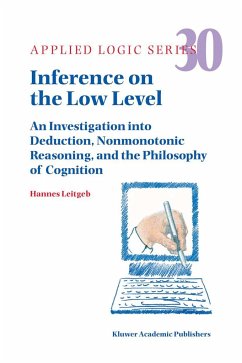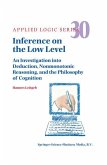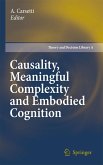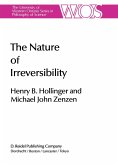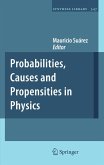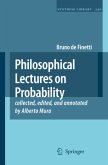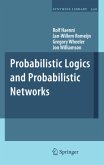In contrast to the prevailing tradition in epistemology, the focus in this book is on low-level inferences, i.e., those inferences that we are usually not consciously aware of and that we share with the cat nearby which infers that the bird which she sees picking grains from the dirt, is able to fly. Presumably, such inferences are not generated by explicit logical reasoning, but logical methods can be used to describe and analyze such inferences.
Part 1 gives a purely system-theoretic explication of belief and inference. Part 2 adds a reliabilist theory of justification for inference, with a qualitative notion of reliability being employed. Part 3 recalls and extends various systems of deductive and nonmonotonic logic and thereby explains the semantics of absolute and high reliability. In Part 4 it is proven that qualitative neural networks are able to draw justified deductive and nonmonotonic inferences on the basis of distributed representations. This is derived from a soundness/completeness theorem with regard to cognitive semantics of nonmonotonic reasoning. The appendix extends the theory both logically and ontologically, and relates it to A. Goldman's reliability account of justified belief.
Hinweis: Dieser Artikel kann nur an eine deutsche Lieferadresse ausgeliefert werden.
Part 1 gives a purely system-theoretic explication of belief and inference. Part 2 adds a reliabilist theory of justification for inference, with a qualitative notion of reliability being employed. Part 3 recalls and extends various systems of deductive and nonmonotonic logic and thereby explains the semantics of absolute and high reliability. In Part 4 it is proven that qualitative neural networks are able to draw justified deductive and nonmonotonic inferences on the basis of distributed representations. This is derived from a soundness/completeness theorem with regard to cognitive semantics of nonmonotonic reasoning. The appendix extends the theory both logically and ontologically, and relates it to A. Goldman's reliability account of justified belief.
Hinweis: Dieser Artikel kann nur an eine deutsche Lieferadresse ausgeliefert werden.
From the reviews: "The ambitious goal of the book is the formal development of realistic (in particular: dynamic and neuronal) models of the cognitive process of reasoning. ... In sum, Leitgeb's book contains highly original and far-reaching results concerning the relation between three important areas: the epistemology of belief, the logic of reasoning, and the structure and dynamics of neuronal networks. The book is recommended for every reader who is interested in at least one of these areas ... ." (Gerhard Schurz, Journal for General Philosophy of Science, Vol. 38, 2007)

